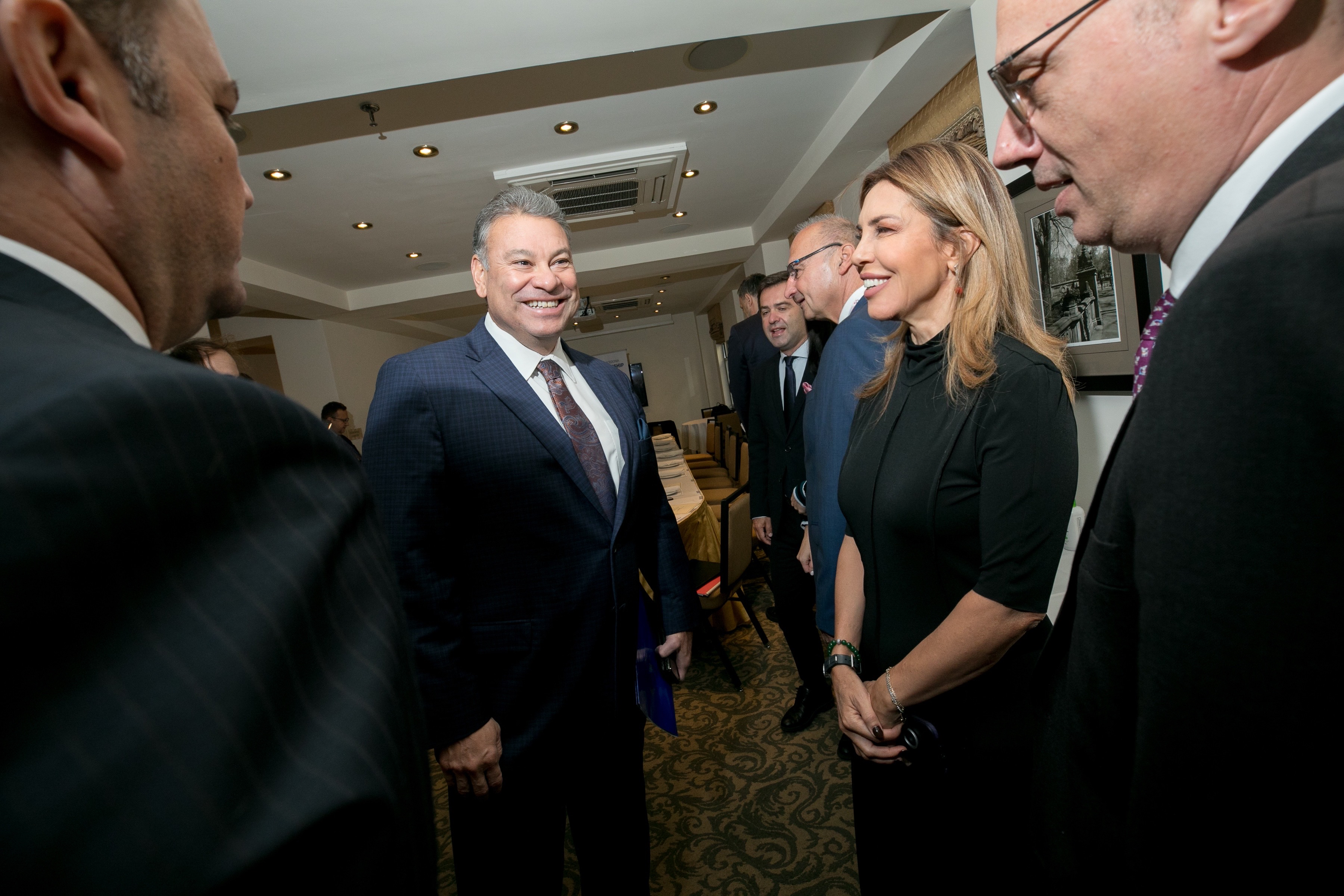RCC SG hosts SEECP Ministerial meeting co-organised with Skopje SEECP CiO in New York Bregu: When global institutions and frameworks are stretched thin, regional bodies can step in to provide stability, continuity, and direction
21 September 2023

RCC Secretary General Majlinda Bregu and Gabriel Escobar, Deputy Assistant Secretary (DAS) at the SEECP Ministerial Breakfast, co-organised by the RCC and Skopje SEECP Chairpersonship-in-Office, in New York on 21 September 2023 (Photo: RCC/Lydia Lee)
New York - "The Western Balkans has made significant progress in the last two decades, but the Western Balkans is not where its inhabitants or outside peacemakers hoped we would be after twenty-plus years. Unfortunately, friction amongst economies persists, and conflicts can hinder investments and economic growth in the region. Having in mind this and the backdrop of these vast geopolitical shifts, we must ponder the evolution of regional entities like SEECP whose value could perhaps be in its pre-negotiation capabilities, its function as a conduit to pre-empt and resolve disagreements before they reach larger multilateral stages. Can we envision SEECP as a regional bastion — a true reflection of South East Europe's unique characteristics, bound by shared values echoing the ethos of the European Union," said Majlinda Bregu, Secretary General of the Regional Cooperation Council (RCC) at the opening of the South East European Cooperation Process (SEECP) Ministerial Breakfast, co-organised by the RCC and Skopje SEECP Chairpersonship-in-Office, in New York today, amid the UN General Assembly High-Level Week.
"As stewards of regional cooperation, we are acutely aware of the prevailing disruptions in the world order – like the Russia's war of aggression against Ukraine. Our collective history has shown us that when global institutions and frameworks are stretched thin, regional bodies can step in to provide stability, continuity, and direction," added Bregu.
"The growth of Western Balkan economies has slowed considerably over the past decade as domestic demand moderated and export-led growth subdued by weak competitiveness. Migration and brain-drain present considerable challenges for all societies in the region. Yet, progress comes down to implementation and reliability. Closer integration with the EU in such sectors as trade, climate, energy, research, health, and foreign and defence policy would make candidate economies feel as part of the EU space even while still on their way to membership. But while these ideas are being sorted out, it will continue to be important to focus on practical steps to build ties, identity and cooperation through other means as well.
The question of our today’s gathering is not whether SEECP has a role to play; it's about how expansive, proactive, and transformative that role should be and how can we jointly contribute to this end," concluded Bregu and invited SEECP participants to engage more resolutely in a joint endeavour of implementing the SEE2030 Strategy as the avenue of sustainable development on an overarching path towards global betterment, a goal this year’s session of UNGA is solemnly dedicated to.
Earlier this week RCC Secretary General gave a lecture at Michigan State University as part of the Centre for European, Russian and Eurasian Studies (CERES) seminar dubbed "Cooperation over division in the Western Balkans - geopolitical challenges in the context of the war in Ukraine" in Detroit. Ahead of the SEECP Ministerial, Secretary General met with EU Special Representative for the Belgrade-Pristina Dialogue and other Western Balkan regional issues, Miroslav Lajcak, discussing the current situation in the Western Balkans, and the highlights of the upcoming activities.
***
Established nearly three decades ago, SEECP stands as a genuine and authentic platform for political dialogue, promoting good-neighbourly relationships and encouraging collaborative endeavours, all designed to shepherd our integration into European and Euro-Atlantic structures.



